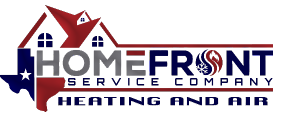Freshen Up Your House With Whole Home Air Purification
Building envelope technologies help ensure energy efficiency and keep homes comfortable year-round by preventing cooled or heated air from leaking out. However, having an airtight home poses challenges to air quality.
According to the Environmental Protection Agency (EPA), indoor pollutants can accumulate if too little outdoor air enters a building, potentially affecting health and comfort.
Ensuring you have adequate ventilation is one way to prevent this from happening. Another measure you can take to improve indoor air quality is to install a whole home air purification system.
What Is a Whole Home Air Purification System?
No matter how well one keeps their home clean, indoor air pollution is still a concern. Pollutants can come from outdoors, but many of them have indoor sources. Some examples of pollutant-producing activities are:
- Cleaning
- Cooking
- Smoking
- Construction work/home improvement
Other sources of indoor air pollutants include newly installed flooring, home furnishings, stoves, fireplaces and humidification devices.
While it may not always be possible to eliminate indoor air pollution at its source, you can lower the concentrations of indoor air pollutants by improving ventilation and utilizing a home air purification system.
A home air purification system, also known as a central air purifier, is a device that cleans the air inside a home. It works alongside an HVAC system for active total home air purification, ridding indoor air of pollutants such as:
- Pet dander
- Dust
- Pollen
- Dust mites
- Mold spores
Types of Whole Home Air Purifying Systems
Some systems are composed of specialized filters that are installed into return-air ductwork. Air that goes through your HVAC system to be heated or cooled also goes through the home air purification system. As long as the HVAC system’s fans run, the filters continue to trap contaminants and remove them from indoor air.
These systems may use the following types of filters:
- Mechanical Air Filters: These create physical barriers that capture particulates.
- Electronic Filters: These create an electrical charge to attract and trap pollutants.
- Hybrid Filters: These combine components of mechanical and electronic filters to improve indoor air quality.
- HEPA Filters: High-efficiency particulate air (HEPA) filters are mechanical filters that can trap and remove a minimum of 99.97% of airborne particles 0.3 microns in size. These include not just the usual pollutants, like dander, pollen and dust, but also bacteria and mold.
Meanwhile, some systems are standalone units. Some models are meant to be placed in the central air return, ensuring active total home air purification.
Other types of home air purification systems are simply more powerful versions of portable air purifiers. These standalone whole-house air cleaners work well in small homes, apartments and condominium units.
The Benefits of an Air Purification System for a Home
People spend most of their lives at home. Unfortunately, if your indoor air quality is poor, this means prolonged exposure to pollutants that could negatively impact your health.
Along with eliminating pollution sources whenever possible and improving your home’s ventilation, installing a whole home air purifying system can help make your home a healthier and more comfortable place to live.
By reducing the pollutant levels in your home, a whole home air purification system may lead to numerous health benefits, such as:
- Fewer or less intense allergy symptoms
- Better sleep quality
- Reduces the amount of dust, pollen and other asthma triggers
It’s important to note that an air purification system alone cannot treat or cure respiratory conditions. However, they can help improve symptoms by improving overall indoor air quality.
Additionally, a whole home air purification system may freshen up your space by eliminating unpleasant household odors, such as smells from:
- Cooking
- Smoking
- Pets
- Household chemicals
Factors to Consider When Choosing an Air Purification System for a Home
There are several models of whole-home air purifiers on the market, so it may be challenging to determine which one is best for you. However, considering the following factors may help you narrow down your search:
- The Size of Your Home: If you have a large house, you would likely need a bigger and more powerful unit than you would if you had a smaller space. If this is the case, a system installed into your existing HVAC system may work best for you. However, a standalone unit may be ideal if you have a more compact living space.
- The Pollutants You’re Concerned About: Some systems are designed to trap and remove specific contaminants. For instance, systems with HEPA filters are better at trapping mold and bacteria than electronic filters. Meanwhile, if you’re concerned about ozone, you’re better off avoiding electronic filters, as they can actually emit ozone.
- Your Budget: Systems can vary widely in price, depending on how powerful they are and what features they have.
However, the best way to ensure you get the best system for your home while staying within your budget is to consult an HVAC professional.
Turn to the Experts in HVAC and Indoor Air Quality
Homefront Service Company provides HVAC, airflow and indoor air quality solutions to customers in New Braunfels, TX, and surrounding areas. You can rely on us for a professional assessment of your air purification needs to determine the best system for your home. We have over 23 years of installation experience, so you can also depend on us to set up your central air purifier.
Contact us today to learn more about our services or request a quote.
